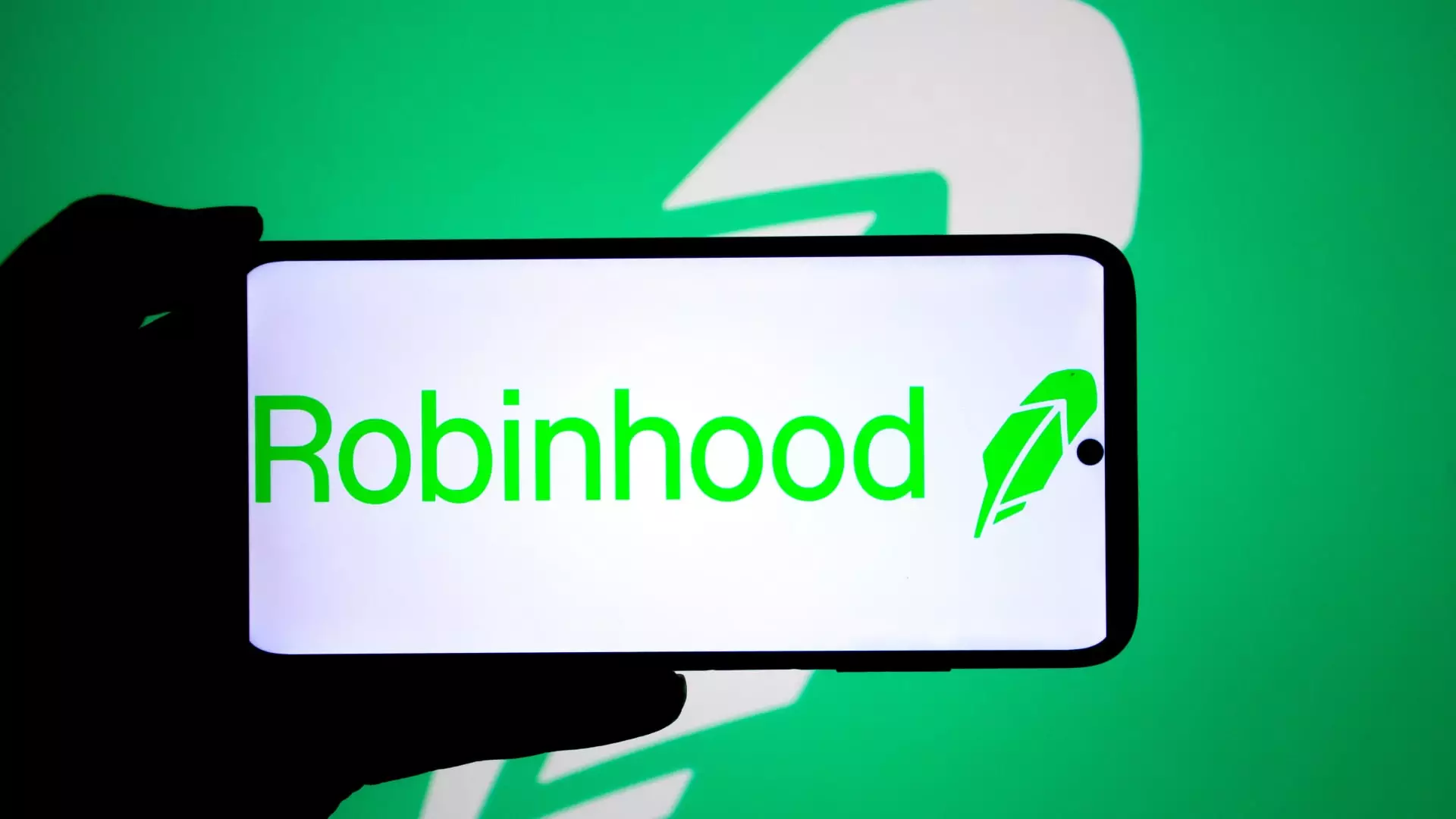In recent months, Robinhood has ventured into the uncharted territory of blockchain-based stock tokens, offering European investors a new way to engage with shares of notable companies like OpenAI and SpaceX. While this development signals a bold step toward integrating blockchain technology into traditional financial markets, it also raises serious questions about legitimacy, transparency, and investor protection. The paradox here is striking: on one hand, Robinhood presents itself as a pioneer pushing the frontiers of financial innovation; on the other, regulators and even the companies involved are sounding alarms about potential risks and misrepresentations.
The core issue revolves around whether these tokens genuinely represent ownership rights or are merely speculative digital assets. Tokenization has the potential to revolutionize share trading—making it more accessible, efficient, and transparent. However, when insurers of such innovation fail to clarify legal structures or mislead investors with vague or exaggerated claims, the entire ecosystem risks collapsing into chaos. Robinhood’s approach, at least publicly, appears to be cloaked in optimism about expanding access, yet beneath is a growing concern about whether the newly launched product complies with existing securities laws and investor protection mandates.
Regulatory Scrutiny: Real Concerns or Overreach?
The recent move by the Bank of Lithuania to question Robinhood’s tokenized stock offerings underscores a broader regulatory unease. Contacting Robinhood for clarifications and assessing the legal clarity of the products signals regulator’s growing discomfort with blockchain-based securities that blur the lines between traditional equities and digital assets. It’s notable that the Bank of Lithuania’s role as Robinhood’s key regulator within the EU gives weight to these concerns. They emphasize the need for transparent, fair, and clearly communicated investment products.
Importantly, the regulator’s inquiries focus on the structure of the tokens linked to OpenAI and SpaceX, as well as the investor communication surrounding these financial instruments. This suggests that Robinhood’s governance frameworks and disclosures might be inadequate or, at the very least, ambiguous. If these tokens are perceived as risky or as securities that require strict compliance with securities law, any deviation can lead to legal repercussions, massive fines, or bans—a risk Robinhood seems to be flirting with seriously.
Meanwhile, OpenAI’s distancing from Robinhood’s product indicates a red flag about authenticity and endorsement. OpenAI’s firm statement that it neither partnered nor approved the tokens highlights the potential for misrepresentation—an issue that could severely damage investor trust and tarnish the reputation of all involved parties.
The Broader Implications: Innovation vs. Consumer Protection
This controversy encapsulates the ongoing clash between innovative fintech solutions and the age-old imperative of consumer protection. Blockchain and tokenization are undeniably revolutionary, offering prospects of increased liquidity, fractional ownership, and global access. But these benefits come paired with significant risks—unregulated markets, potential scams, and opaque legal structures. Robinhood’s tokenized stocks are a textbook example of how rapid technological innovation often outpaces regulatory frameworks, leading to a confusing and potentially dangerous landscape for investors.
From a regulatory perspective, the challenge lies in balancing the promotion of innovation with the prevention of harm. If products like Robinhood’s tokens are not adequately understood, properly regulated, or transparently communicated, they could give rise to a new wave of investor grievances or even legal disputes. In this scenario, both consumers and the integrity of financial markets could suffer irreparable damage.
Moreover, Robinhood’s silence on the matter and the absence of an immediate comment raise questions about accountability. As a publicly prominent platform known for democratizing access to financial markets, Robinhood has a duty to uphold high standards of transparency and legal compliance—especially in the delicate realm of securities and digital assets. Their reluctance or delay in clarifying their product could be interpreted as vulnerability or even recklessness.
A Cautionary Tale for the Future of Digital Securities
The Robinhood case study underscores a looming cautionary tale. As technology continues to weave itself into the fabric of finance, firms cannot afford to prioritize innovation at the expense of legality and investor protection. The regulatory pushback from the Bank of Lithuania, combined with the public skepticism from OpenAI, is a wake-up call: the crypto-asset world remains riddled with pitfalls, and unqualified enthusiasm can lead to severe repercussions.
What remains to be seen is whether Robinhood and similar entities will heed the warnings or continue to push forward with potentially non-compliant products. The government and regulators worldwide are unlikely to turn a blind eye to questionable products, especially those involving high-profile tech companies and innovative blockchain assets. If Robinhood’s tokenized stocks are found lacking in transparency or legal foundation, it could set a precedent that halts broader adoption, at least temporarily.
Robinhood’s tokenized share offerings are a vivid reflection of the chaotic yet promising frontier of digital finance. Whether they become a beacon of future innovation or a cautionary tale depends on the company’s willingness to embrace transparency, cooperate with regulators, and prioritize investor safety. The race to tokenize stocks should be about establishing trust, not eroding it.

